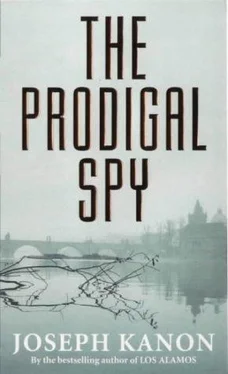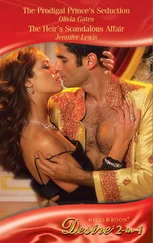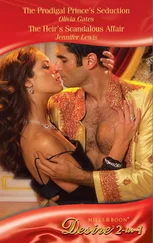“Yes. It’s all right.” He smiled. “No quarrels.”
“You think I’m foolish to worry like the mother hen. But I know him. All this month he’s waiting. What if he doesn’t come?”
“But I did.”
“Yes.” She turned back to the sink. “Your mother-she didn’t object?”
He glanced at her. “I didn’t tell her,” he said cautiously, not offering any more.
“Ah,” Anna said. “You thought it would upset her? Still?”
“I don’t know. She never talks about it.”
She nodded to herself. “Like Valter,” she said, translating his father’s name, making him foreign, hers. “Never of her. Only you.” Then, unexpectedly, “She’s a woman of fashion.”
It was another trick of language, the archaic phrase wrapping his mother in gowns and powdered wigs, a figure in a Fragonard swing. Nick smiled.
“I suppose. She thinks so, anyway.” There it was again, the easy disloyalty.
“Yes. I saw photographs. Beautiful. I was maybe a little jealous,” she said shyly.
“Jealous?”
Anna laughed. “When we get old, we become invisible to our children. But we still see. He was in love with her, I think.”
“That was a long time ago,” Nick said, embarrassed. Did she want to be reassured, this thick-waisted woman with her hands in the sink?
“Sometimes it’s easier to love a memory. In life, things change. What would Zdenek be like now, I wonder sometimes.”
“Who?”
“Excuse me. My first husband. It was a long time ago.” She smiled, echoing Nick’s words. “He was killed.”
“In the war?”
“No, when the Germans first came. They arrested him. They arrested all the Communists.”
Another life, closed to him. More than his father’s wife. Why had he thought she had no history?
“So to me he’s always young, like then. Now what would he be? An old man at the Cafe Slavia, arguing politics. Well, who knows? We change.” She turned and dried her hands on the towel, her eyes soft and concerned. “Even your father. Sometimes, you know, when a memory comes to life, it’s not what we expect.”
“You don’t have to worry,” Nick said. “I don’t expect him to be the same.”
She shook her head. “No. Him. What does he expect? All these years, he sees you as you were-not a man, not different. And then-” She reached over and touched his arm. “You’ll be careful. You won’t-excite him.”
Nick looked down at her hand. “You didn’t want me to come,” he said simply.
She sighed. “The wicked stepmother? No. It’s good for you to see each other. But perhaps Valter’s right, I am always looking for the rain. Why now? What does he want?” Nick moved his arm away, afraid of the question, but she had her own answer. “I think he’s getting ready to die. So, this meeting. But I’m not ready for that. We have a life here. Not rich. Not-fashion,” she said, almost spitting the word. “Quiet. But you don’t know what it means to have this. What it was like before.”
She shopped, turned back to the draining board, picked up a kettle, and held it under the faucet. For a minute the only sound was running water.
“I’m not trying to upset anything,” Nick said lamely.
“No,” she said quickly. “Excuse me. Such foolishness. How happy he is-you can see it in his eyes. So maybe it’s good.” There was a popping sound as she lit the gas ring.
“Two days. That’s all,” Nick said, as if they were bargaining for time.
She nodded. “Go talk to him. I’ll bring the tea.” She glanced out the window, a caretaker again. “It’s too much beer-he’ll fall asleep.”
But he was animated, talking with Molly in a patch of sunlight. In the low-slung canvas chairs they looked like a Bloomsbury photograph, droopy sun hats and cigarettes, waiting for tea.
“Nick. KP finished?” he said. “You’ll make someone a good husband. What do you think, Molly?”
She looked up at Nick. “Hmm. A catch.”
“I was telling Molly about when they took down Stalin’s statue here, in Petrin Park. Crowds kept coming-cheering, you know? — so they had to do it at night. But you could hear the dynamite way over Holeckova. All those years, and he still wouldn’t go quietly.”
“Chair?” Molly offered, but Nick sat down next to them on the grass.
“What’s down there?” He pointed to the clump of trees below. “Where the mist is.”
“Water. What we used to call a crick,” his father said, smiling at the word. “There’s always mist here, all over this part of Europe. It’s the cloud cover, I think. No wind, unless the fohn comes up from Vienna. Then everybody gets headaches. Maybe it explains the politics.”
Molly giggled. “And Freud.”
His father shot her an appreciative glance. “Yes, and Freud. Maybe it was the weather all along.” He lit a cigarette. “So, Nick, what will you do now?” A father’s question, innocent. “After LSE.”
Molly turned to him, frankly curious.
“Larry wants me to go back to law school.”
“Well, he would. And you?”
Nick shrugged. “We’ll see.”
“All the time in the world,” his father said. “Well, why not? Of course, someday you’ll have to earn a living.”
The tone, so unexpectedly paternal, annoyed Nick. Maybe Anna was right-he’d always be as he had been, a child.
“Larry settled some money on me,” he said bluntly.
His father was quiet for a second. “Did he? That was generous.”
“I told you he was a catch,” Molly said.
But this time his father ignored her. “What do you want to do, work with Wiseman?” He leaned back, smoking. “Of course, it’s the great subject. To know what happened. You know, when I was your age I thought history was-what? Sweeping forces,” he said, his voice ironic. “We were all swept along. Playthings.”
“A dialectic.”
“Yes, like that. The clash of forces. Something almost abstract.”
“And then?”
“Then, I suppose, biography. I saw the effect of one man. What if there hadn’t been a Stalin? Would things have been the same? No, utterly different. What if he’d never existed?”
“Who?” Anna said, coming out to them with a tray.
“Stalin.”
She hesitated, then handed his father a mug and two pills. “Here,” she said, as if nothing had been said.
“The great man theory,” Nick said.
“Great man,” Anna said. She passed out the mugs. “Such talk,” she said to his father, the words a kind of clicking of the tongue. Then she put the empty beer bottle on the tray, looked at them worriedly, and turned back to the house.
“She’s offended?” Nick said.
“No,” his father said. “She thinks the trees have ears, like all good Czechs. Someone’s always listening.” He sipped the tea. “At Stalin’s funeral, several thousand people died. Trampled. In the crowd, to say goodbye. To the man who tried to murder them.”
“There’s no one like that now,” Molly said quietly.
“Now? No. Petty crooks. Bureaucrats. So much for the theory. I was wrong. They were aberrations, the Stalins. Great forces, great men-such melodrama. And all along, what was it? A crime story.”
Nick looked up at him.
“Of course, it’s interesting,” his father said, gazing back to Nick. “To solve the crime.”
“That’s what Wiseman says.”
“Yes, well, he should know.” He smiled slightly. “Maybe it’s a hazard of the profession. He worked for the British, you know. SIS.” He caught Nick’s look. “No, not now, during the war. Everybody did. He must have seen plenty of crimes. All in a good cause, of course. They’re always in a good cause. Even Stalin’s, who knows? People thought that. Sometimes even the victims thought that-it gave them a reason why it was happening to them.” — He shrugged. “History.”
Читать дальше












